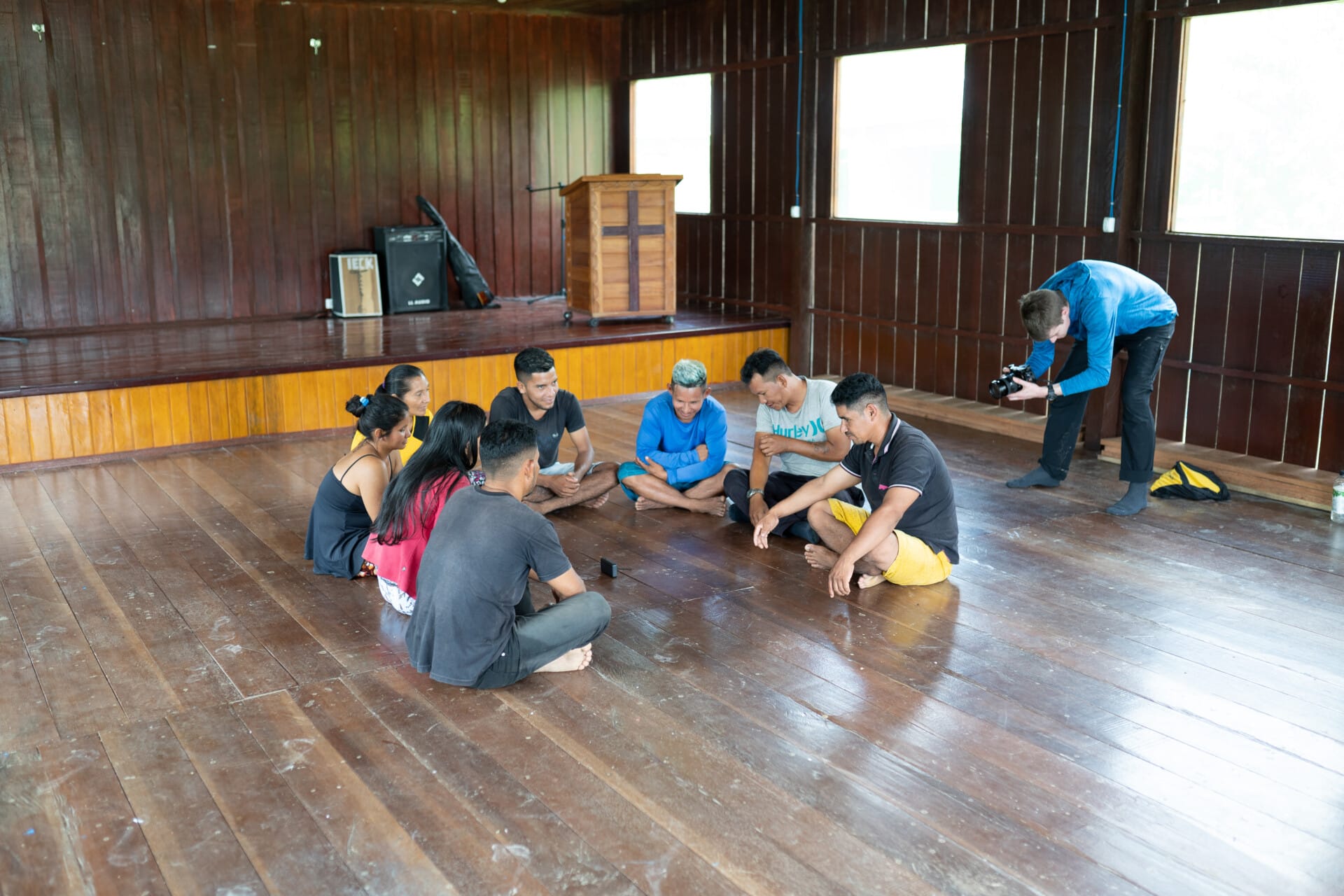January 20, 2023
The Importance of Dwelling in Unity
Rachel Kidd
Stories of Hope
What is unity?
Acts 2:42 They devoted themselves to the teaching of the apostles and to the communal life, to the breaking of the bread and to the prayers.
To live in unity is to be devoted, like Acts 2:42 tells us, devoted to the act of communing with others and breaking bread together. This gives us a picture of what dwelling in unity looks like, a mutual devotion to the uplift of the community, sharing meals, and praying together.
Ephesians 4:1–3. I therefore, a prisoner for the Lord, urge you to walk in a manner worthy of the calling to which you have been called, with all humility and gentleness, with patience, bearing with one another in love, eager to maintain the unity of the Spirit in the bond of peace.
Unity is a bond of peace that joins us together in a spirit of gentleness and patience. It is a calling of humble love, not of social climbing or competition. The unity we strive for can only be found through Christ, as the verse reminds us, in “the unity of the Spirit.”
Koinonia
A farmer by the name of Clarence Jordan who worked for a non profit organization called Habitat for Humanity, also worked with the United States President Jimmy Carter. Jordan was also a biblical Greek scholar, theologian, and minister. He saw a divided world around him, one blistered by racial division and hated, lost in meaningless social dribble, and squandered in poverty. The solution, he believed, was found in the New Testament, in the good news of both Jesus and of fellowship. Clarence Jordan was adamant in his belief that biblical fellowship does not describe “pleasant social contracts.1” Rather, he believed that holy fellowship was something far greater and deeper, where God’s people took care of and worked alongside each other, never wanting for anything.
Per his vision, Jordan ultimately created a thriving integrated community, deep in the segregated south of the 1940’s, where members of all races could work the land alongside one another. He believed living in community was the answer, rather than protests or violence. They called it Koinonia Farms, nestled in the southwest corner of Georgia in Americus County.
Koinonia (κοινωνία) is a Greek word that means communion or fellowship, to commune together. Koinonia is used in Acts 2:42 to describe the earliest Christian community, how they lived in deep relationship with each other. Luke uses Koinonia several times throughout Acts 2 to describe the early church, emphasizing its importance to Christian identity.
And much like the early church, Clarence Jordan’s Koinonia was a cultural anomaly amidst a rigid social structure and rampant poverty. In both the early church and at Koinonia Farm, everyone had what they needed, lacked for nothing, and shared everything.
“There wasn’t a needy person among them, for whoever had fields or houses sold them and brought the proceeds and turned them into the apostles. And it was distributed to each according to his need” (Acts 4:34–35).
Why is it important?
Psalm 133
Behold, how good and how pleasant it is
For brothers to dwell together in unity!
It is like the precious oil upon the head,
Coming down upon the beard,
Even Aaron’s beard,
Coming down upon the edge of his robes.
It is like the dew of Hermon
Coming down upon the mountains of Zion;
For there the Lord commanded the blessing — life forever.
Like the sweetest and richest things of life, this Psalm reminds us of the joy that dwelling in unity brings. Being at peace and harmony with our brother brings not only joy to our own lives, but also to God. He favors those who live in peace and blesses those who dwell in the spirit of unity.
However, God does not promise that dwelling in unity will always be easy. Often, living this way can be at odds with the larger culture we live in. Koinonia Farms was targeted and brutalized by a terrorist organization called the KKK because it was racially integrated and accused of ties to communism. They faced horrific acts of terrorism from bombings to lynchings, simply because they chose to live differently in the way they felt called by the Lord.
The early church was also targeted and persecuted by the Roman Empire, suffering first with the crucifixion of Christ on the cross and the execution or imprisonment of many early apostles. Christianity was new at the time and didn’t yet have the foundation of ancient ritual to support its existence. For simple existing and building their God-ordained community, the early church was met with hostility from the world around them.
Yet, God still calls us to dwell in unity. The risks are great, even today as the church around the world continues to face brutal persecution, but the eternal reward is far greater.
“I have fought the good fight, I have finished the race, I have kept the faith. Henceforth there is laid up for me the crown of righteousness, which the Lord, the righteous judge, will award to me on that day, and not only to me but also to all who have loved his appearing.”

Sign up for the Monthly Prayer Calendar
Join us in covering everything we do in faithful prayer.
Subscribe to receive the Monthly Prayer Calendar. Each calendar includes a featured story, profile, or devotional—plus short, daily prayer requests from our indigenous partners.


